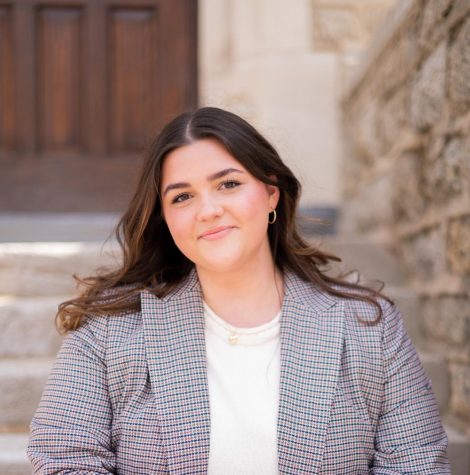The Importance of TikTok’s ‘97%’ Trend
March 31, 2021
A new TikTok trend has emerged in light of Sarah Everard’s murder and the #MeToo movement.
Data published on March 10 found 97% of women in the U.K. between the ages of 18 and 24 have experienced some form of sexual harassment in public. This includes cat-calling, excessive staring, being groped, receiving unsolicited suggestive content online and more. This shocking study, paired with the recent tragedy of the Everard’s murder in the U.K. while walking home, has propelled a trend for women to share the moment they became a part of the ‘97%.’
What’s even more shocking is the same study found that of the 97% of women that had an experience, more than 95% did not report it because they felt like it would not change anything.
While the movement on TikTok started as women taking their power back and sharing their experience to show other women they are not alone, the movement’s backlash and counteractive “Not All Men” movement have flooded its comments. Let’s get one thing straight: it’s pretty obvious that not every single man is sexually harassing women. This “Not All Men” movement is not reassuring to women. In fact, it’s a slap in the face. It takes away from females speaking out on their experiences, and it belittles the clearly enormous issue at hand.
Denial and stealing the spotlight from women’s stories does absolutely nothing for a progressing movement. While it’s common sense that not all men are predators, the question all men should be asking themselves in relation to this movement is, am I doing everything in my power to try and make women feel more comfortable? And, are my friends doing the same? Tolerance of this behavior is what prolongs the normalization and increases instances of sexual harassment. In conclusion, while it’s not all men, it’s nearly all women.
Amongst the “Not All Men” comments on TikTok, there are even more people heavily doubting the statistic, and some going so far as to discredit individual women’s stories. I’ve been following =Everard’s story and the ‘97%’ trend for a while now, but one woman’s TikTok and the comments she received particularly struck me. After sharing her incredibly difficult and powerful story, some men left comments doubting that someone would harass her because she was not personally appealing to them. That’s when the severity of the desensitized way we speak about women really hit me. I was infuriated and disgusted enough to ultimately write this article.
Even in a place meant to highlight women’s experiences, there are comments equating her worth and validity with her appearance. These comments, attempting to discredit women, are actually proving the exact point this movement is making: hypersexualization and mistreatment of women is incredibly widespread and deserves the utmost attention. Why do people do this? Do they think it is funny, or does it make them feel better to negate that this is happening to this one individual woman? If their mother or sister told them the same story, would they so callously claim they were lying?
For the people that do not question the individual stories but do doubt the statistic’s legitimacy, the time to express that doubt is not now, and especially not on a victim’s TikTok page. While the study was conducted with a small focus group in the U.K. and, therefore, the statistic cannot be applicable to a worldwide percentage, the exact number should not invalidate the movement itself. Immediately after hearing women’s collective stories, if you find yourself searching for ways in which the statistic is wrong instead of asking for ways to help, you have completely missed the point. For some, scrambling to invalidate this statistic can serve as evidence of guilt and panic, and, for others, pure naivety and genuine disbelief. The outcome of both of these scenarios is the same: adding obstacles onto a long and rocky road women already have to face.
So, if you’re reading this as a part of the ‘97%,’ I am incredibly sorry that your experience is somehow twisted to be the norm in today’s culture. I encourage all women, part of the 97% or not, to engage in whatever type of dialogue they can to raise awareness and unify in light of this movement. And, if you are reading this as a man, anyone who is not aware of the movement or someone who finds the need to question its validity, please ask how you can contribute to a better and safer world for women.


